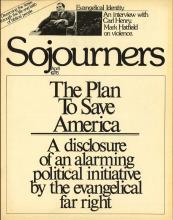The Evangelicals: What They Believe, Who They Are, Where They are Changing. Edited by David F. Wells and John D. Woodbridge. Abingdon Press, 1975. $8.95.
In a “Guide to Further Reading” appended to these interpretive essays Don Tinder of Christianity Today warns against three failings of most attempts to analyze evangelicalism. Such efforts are often partisan (either against the whole or for one segment against others), usually promise a “far more general scope than their contents actually provide,” and frequently confuse fundamentalism and evangelicalism (pp. 292-3).
Editors Wells and Woodbridge (both church historians at Trinity Evangelical Divinity School) have brought together nine “insiders” and four distinguished “outsiders” to interpret contemporary evangelicalism by describing evangelical belief, the shape of the evangelical world, and the cutting edges of change. One wishes the editors could have had Tinder’s warning earlier. Had they heeded it, they might have produced a better and more useful book. As it is, Tinder himself provides the reviewer with a most appropriate outline on which to hang a critique.
The partisan character of this book is revealed most clearly in the first essay by John Gerstner, church historian at Pittsburgh Theological Seminary and also adjunct professor at Trinity. In establishing the “Theological Boundaries of Evangelical Faith,” Gerstner specifies not just the “message of salvation” epitomized in the Reformation insistence on “justification by faith” but the specific interpretation preserved during the 19th century in the so-called Princeton theology articulated by Charles Hodge and B.B. Warfield.
Read the Full Article

